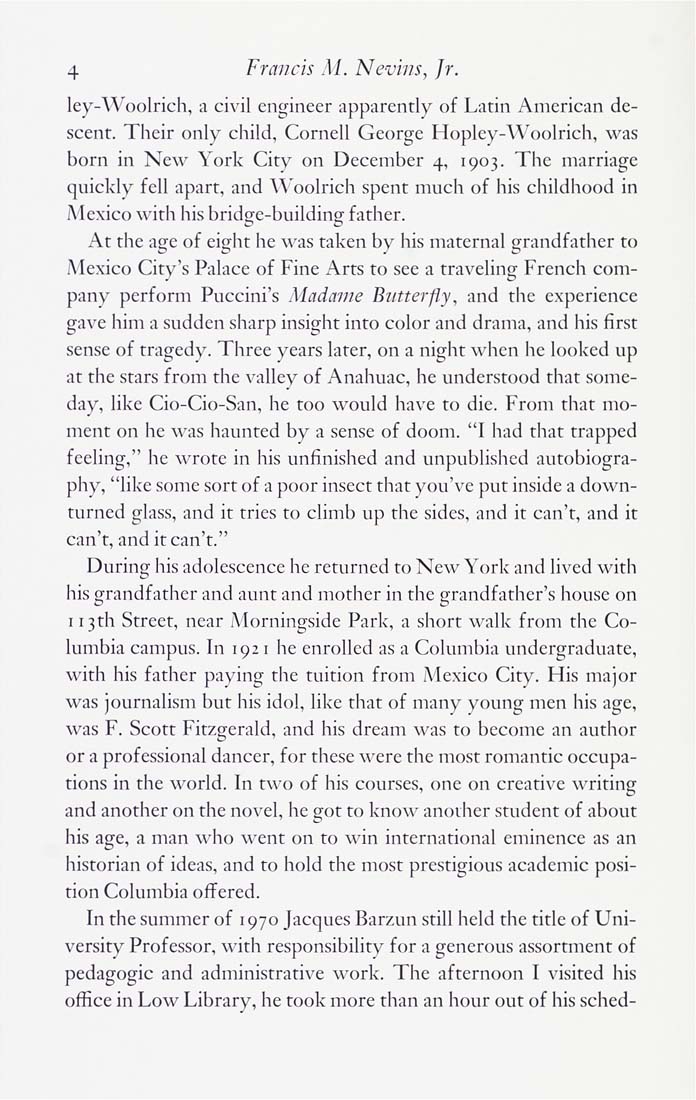Columbia Library columns (v.35(1985Nov-1986May))
(New York : Friends of the Columbia Libraries. )
|
||
|
|
|
|
| v.35,no.2(1986:Feb): Page 4 |

4 Francis M. Nevins, Jr. ley-Woolrich, a civil engineer apparently of Latin American de¬ scent. Their only child, Cornell George Hoplcy-Woolrich, was born in New York City on December 4, 1903. The marriage quickly fell apart, and ^\'oolrich spent much of his childhood in Mexico with bis bridge-building father. At the age of eight he was taken by his maternal grandfather to Mexico City's Palace of Fine Arts to see a traveling French com¬ pany perform Puccini's Madame Butterfly, and the experience gave him a sudden sharp insight into color and drama, and his first sense of tragedy. Three years later, on a night when he looked up at the stars from the valley of Anahuac, he understood that some¬ day, like Cio-Cio-San, he too would have to die. From that mo¬ ment on he was haunted by a sense of doom. "I had that trapped feeling," be wrote in bis unfinished and unpublished autobiogra¬ phy, "like some sort of a poor insect that you've put inside a down- turned glass, and it tries to climb up the sides, and it can't, and it can't, and it can't." During his adolescence he returned to New York and lived with his gtandfather and aunt and mother in the grandfather's himse on 113th Street, near Morningside Park, a short walk from the Co¬ lumbia campus. In 192 i he enrolled as a Columbia undergraduate, with his father paying the tuition ftom Mexico City. His major was journalism but his idol, like that of many young men his age, was F. Scott Fitzgerald, and his dream was to become an author or a professional dancer, for these were the most romantic occupa¬ tions in the world. In two of his courses, one on creative writing and another on the novel, he got to know another student of about his age, a man who went on to win international eminence as an historian of ideas, and to bold the most prestigious academic posi¬ tion Columbia offered. In the summer of 1970 Jacques Barzun still held the title of Uni¬ versity Professor, «ith responsibility for a generous assortment of pedagogic and administrative work. The afternoon I visited his office in Low Library, he took more than an hour out of his sched- |
| v.35,no.2(1986:Feb): Page 4 |







